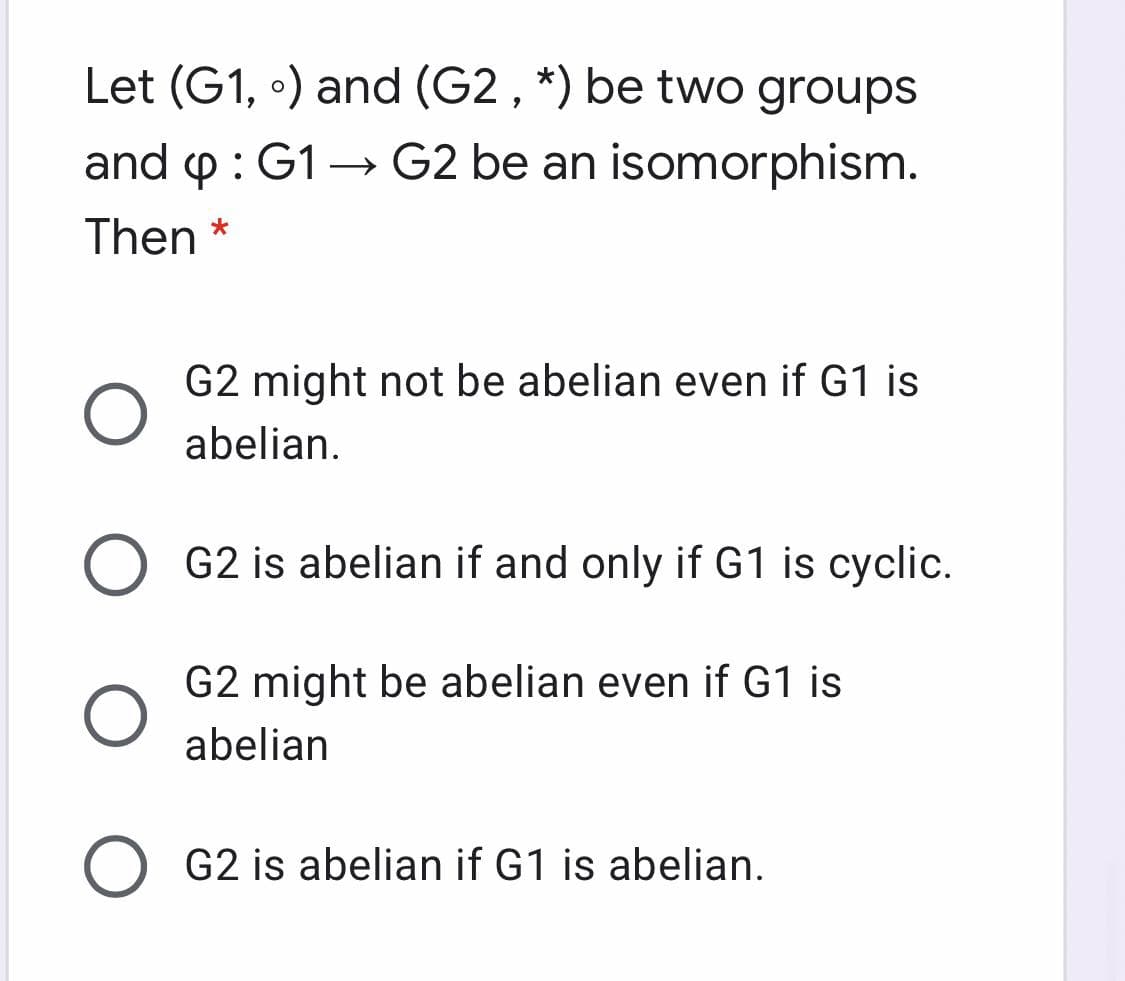Let (G1, •) and (G2 , *) be two groups and p : G1→ G2 be an isomorphism. Then * G2 might not be abelian even if G1 is abelian. G2 is abelian if and only if G1 is cyclic. G2 might be abelian even if G1 is abelian G2 is abelian if G1 is abelian.
Let (G1, •) and (G2 , *) be two groups and p : G1→ G2 be an isomorphism. Then * G2 might not be abelian even if G1 is abelian. G2 is abelian if and only if G1 is cyclic. G2 might be abelian even if G1 is abelian G2 is abelian if G1 is abelian.
Elements Of Modern Algebra
8th Edition
ISBN:9781285463230
Author:Gilbert, Linda, Jimmie
Publisher:Gilbert, Linda, Jimmie
Chapter3: Groups
Section3.5: Isomorphisms
Problem 33E: Suppose that G and H are isomorphic groups. Prove that G is abelian if and only if H is abelian.
Related questions
Question

Transcribed Image Text:Let (G1, •) and (G2 , *) be two groups
and p: G1→ G2 be an isomorphism.
>
Then *
G2 might not be abelian even if G1 is
abelian.
G2 is abelian if and only if G1 is cyclic.
G2 might be abelian even if G1 is
abelian
G2 is abelian if G1 is abelian.
Expert Solution
This question has been solved!
Explore an expertly crafted, step-by-step solution for a thorough understanding of key concepts.
This is a popular solution!
Trending now
This is a popular solution!
Step by step
Solved in 2 steps with 1 images

Knowledge Booster
Learn more about
Need a deep-dive on the concept behind this application? Look no further. Learn more about this topic, advanced-math and related others by exploring similar questions and additional content below.Recommended textbooks for you

Elements Of Modern Algebra
Algebra
ISBN:
9781285463230
Author:
Gilbert, Linda, Jimmie
Publisher:
Cengage Learning,

Elements Of Modern Algebra
Algebra
ISBN:
9781285463230
Author:
Gilbert, Linda, Jimmie
Publisher:
Cengage Learning,